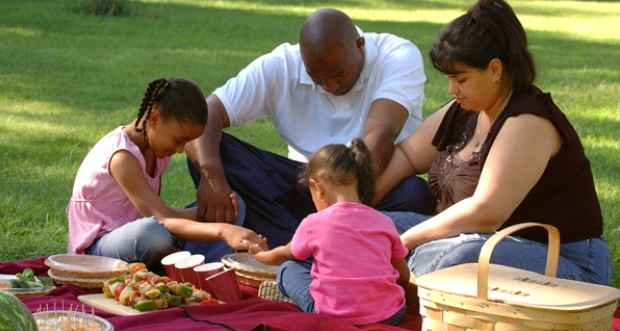Today’s Gospel – A Blueprint In Conflict Resolution

By Fr Dexter Brereton, CSSp
“Not everything that is faced can be changed, but nothing can be changed unless it is faced.”
This is my all-time favorite quotation from the great African-American writer James Baldwin on the issue of facing or ‘facing-down’ important issues in life, like racism, sexism, oppression, domestic abuse, issues that bring people into sharp conflict. This saying of Baldwin’s came to mind as I read today’s Gospel text in which Jesus gives a wisdom teaching on how conflict is to be faced in community. It is remarkable since it represents a process of confrontation unfolding in stages, a process marked by its sense of discretion, of not wanting to ‘expose’ the conflict in a premature way and to act in a proportionate manner in regard to the offender. I would advise anyone reading this wonderful teaching in Matthew’s Gospel to read it with Baldwin’s quote playing in the background since James Baldwin’s position injects a healthy dose of reality into our reflection. The fact is, this advice on managing conflict in the community will not work for every circumstance or for every kind of person.
Allow me to illustrate what I mean. This piece of advice is less certain to work in situations where there is a wide disparity in power between the one offended and the offender. Think about, for example, a clerk-typist in a government Ministry, trying to speak to her boss the Minister or Permanent Secretary about her rudeness towards her. In many situations, calls to ‘have it out with him/her alone’ are likely to be flatly dismissed.
Other people in my own experience, a blessed with a very clear sense of moral certainty, of the rightness or wrongness of their actions. While this is often a wonderful quality to have, such persons, in the midst of conflict, are not amenable to re-examine their own values and moral judgments. In fact, in retrouvaille, it is our experience that such stubborn attitudes have damaged many a marriage since the offending party is completely unable to appreciate the emotional and human impact of their own stance on a particular issue in conflict.
Matthew’s teaching is better appreciated against the backdrop of a couple of Old Testament texts. Leviticus 19: 17 for example says the following: “You must not bear hatred for your brother in your heart. You must openly tell him your neighbour of his offense, this way you will not take a sin upon yourself.” Here the Jewish law imposes upon the children of Israel the obligation of fraternal (or sisterly) correction. As Baldwin states, there are some situations or misdeeds, which must be squarely faced and not hidden away in the recesses of the heart only to ‘bust out’ again in a torrent of rage much later on. How many of us have been part of a quarrel where the person we have offended, tells us not just what we have done in the present but everything we may have done for the past fifteen years! It is as if, they have constructed in their memory a “museum of hurt” and all the exhibits are thrown back at you in the midst of a conflict. Here then, is the first powerful lesson of today’s Gospel. DO NOT ALLOW HURT TO FESTER. Tell your hurt, respectfully, and honestly, even if you are not likely to ‘win’ the quarrel.
For myself, I find that as I grow older, there is also a growing need for this kind of emotional honesty in all my relationships. Many of my friends are the same. When I read the words: ‘If your brother (sister) does something wrong, go and have it out with him (her) alone’ I am reminded that at the heart of life, there is a constant invitation to emotional freedom. We have an increasing need of candour in all our intimate relationships. I celebrate then those times that I have been able to accept this invitation to freedom, to speak up, to face the conflict, to tell my hurt, even if I risk ‘losing’ the argument. Sirach 19:13 ff asks the believer to ‘question’ the person if they have heard about an offense committed against them. This questioning spirit is very relevant to today’s Gospel reading. When you ‘have it out with him/her alone’ you are invited to engage in a gentle search for the truth, not to make an accusation.
Finally, there is a major inner challenge when facing conflict. Jesus says If your brother does something wrong, go and have it out with him alone. The problem of course, is that in life, when we enter into confrontation with the offender, we are seldom ‘alone’. There in the room with us, there, in this space of confrontation are all the memories of past conflicts that you may have had with this very person, there with you are all your biases against them. Thus it is, that many of us may have experienced these confrontations being very toxic from the beginning. Let us ask Almighty God for pardon, when we carried ‘others’ into this confrontation with our brother or sister, by that meaning, memories of past hurts, our own difficult experiences, our biases, and our prejudices. We pray that we may be given the grace to enter as freely as possible into dialogue with the sister or brother who has done something wrong against us – that we may be willing to leave the past behind and be willing to change our minds about them, as we gently search for the truth. Amen.






